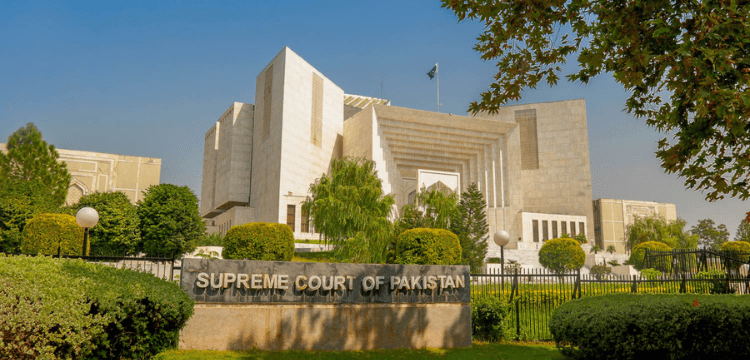[vc_row][vc_column][vc_column_text dp_text_size=”size-4″]ISLAMABAD: The Supreme Court of Pakistan has ordered the political parties, both those in power and opposition, to meet in order to determine the date for the elections in the provinces of Punjab and Khyber Pakhtunkhwa.
The instructions were given by a five-member bench consisting of Chief Justice Umar Ata Bandial, Justices Munib Akhtar, Muhammad Ali Mazhar, Justice Shah, and Justice Mandokhail as it heard the suo motu case brought to determine who has the right to declare the date for the elections.
Shireen Mazari and Fawad Chaudhry, leaders of the PTI, were ordered by the supreme court to speak with Imran Khan, the party’s chairman, and the legal staff of the ruling coalition to determine the election date.
Following the recusal of four justices from the bench, the three ruling parties—PML-N, PPP, and JUI-F—withdrew their request for the formation of a full bench to hear the suo motu case. Farooq H Naek stated that the ruling partners did not choose to continue the plea while withdrawing the petition.
The political parties, according to Justice Mansoor, should consider the country rather than engaging in a judicial battle.
The case was previously being heard by a nine-member bench, but on Monday it was divided into a five-judge bench as a result of four judges recusing themselves from hearing the case: Justice Ijazul Ahsan, Justice Syed Mazahar Ali Akbar Naqvi, Justice Syed Mansoor Ali Shah, and Justice Athar Minallah.
Today’s Hearing
Attorney General for Pakistan (AGP) Barrister Shehzad Ata Elahi objected to the inclusion of Islamabad Bar Council attorney Abid Zuberi in the earlier order of the top court, claiming this at the beginning of the session.
An order became a decree when it was signed by the judges, according to CJP Umer Ata Bandial. He then gave Mr. Zuberi the opportunity to present his case.
Judge Mandokhail questioned whether the governors and president were required to follow the cabinet’s recommendations at one point during the hearing. He inquired as to whether or not they could independently notify the polling day.
The chief justice noted that where someone had discretionary authority, there was no need to follow their counsel.
The CJP then asked, “Who can give the notification of dissolving the assemblies?” The notification to dissolve the assembly, according to Mr. Zuberi, was issued by the law secretary.
He said that the Supreme Court had already ruled that elections must be held within 90 days.
When asked about the president’s power to set the election date, Judge Mandokhail responded that Article 48 of the Constitution required the president to base all decisions on the advice of the administration.
“This means that the announcement of the date for polling would be on recommendation of the administration,” the CJP said in response.
Mr. Zuberi disagreed, asserting that the governor had the power to dissolve the assembly. Who will thereafter send out the notification of the dissolution of assemblies? the CJP questioned.
According to the attorney, the governor was required to dissolve the assembly on the chief minister’s recommendation.
No matter whether the summary was signed by the governor or not, he claimed that the assemblies were automatically dissolved 48 hours after issuing the advise.
According to him, the law secretary, not the governor, in this instance issued the notification of the dissolution.
Judge Mando khail noted that, in accordance with the Constitution, the administration might still ask the governor to set a date for elections.
Judge Shah questioned whether the president could decline to accept a government advice.[/vc_column_text][/vc_column][/vc_row]











